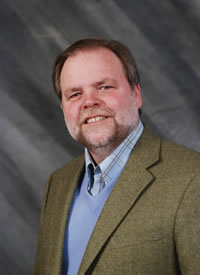Dancing with Diana – 8 – Naval Gazing or Planet Changing (Bruce Epperly)
 Bruce Epperly brings his series Dancing with Diana to a close with this post, wherein he makes it clear that spirituality and acts of justice need each other. We can be spiritual and still be about planet changing ministry. I invite you to explore this piece, consider it, and offer your responses.
Bruce Epperly brings his series Dancing with Diana to a close with this post, wherein he makes it clear that spirituality and acts of justice need each other. We can be spiritual and still be about planet changing ministry. I invite you to explore this piece, consider it, and offer your responses.
Bruce will be back in the fall with a new series! So, Stay tuned.
***********************
Dancing with Diana – 8 –
Naval Gazing or Planet Changing
Bruce G. Epperly
Traveling speakers and seminar leaders, like Diana Butler Bass and me, get all sorts of questions and comments by program participants. In Christianity After Religion: The End of Church and the Birth of a New Spiritual Awakening
I have run into the same dichotomy of spirituality and action in my work with mainstream and progressive churches. A number of members of one church with whom I recently consulted made it clear that this divide was a serious one: “some of us think we need to act first and pray later; others assert that we need to pray for guidance before involving ourselves in social action.” I told the members that both positions were right – like the Chinese philosophy of yin and yang, healthy spirituality leads to action and social action emerges in the contest of visionary spiritual practices.
I believe that spirituality and action permeate each other. As a panentheist, I affirm “God in all things and all things in God.” This affirmation points, first, to God’s presence in every situation and person; second, it asserts that every situation is embraced by God, that is, whatever we do matters not only to our neighbor, but to God, the one to whom all hearts are open and all desires known. Whatever occurs on earth influences “heaven” and whatever is imagined in “heaven” shapes our earthly lives. There are people who are “so heavenly minded that they are no earthly good,” but the goal of Christian journey is to be “heavenly minded and earthly good” – to be partners in God’s realm of Shalom coming “on earth as it is in heaven.” Our ethical actions are always God directed: as Mother Teresa proclaims, we are called to do something beautiful for God.
Dorotheos of Gaza saw the relationship of spirituality and ethics in terms of a circle of love. The saint invited us to imagine a circle with its center and radii or rays going out from this center. In Dorotheos’ words:
The further these radii are from the center the more widely they are dispersed and separated from one another; and conversely, the closer they come to the center, the closer they are to one another. Suppose now that this circle is the world, the very center of the circle is God, and the lines going from the center to the circumference or from the circumference to the center are the paths of peoples’ lives. When we move inward within the circle towards its center, wishing to come near to God, then, in the degree of their penetration, they come closer both to God and to one another; moreover, inasmuch as they come nearer to God, they come nearer to one another, and inasmuch as they come nearer to one another, they come nearer to God.
Spiritual practices enable us to draw near to God experientially and to experience the divine in our brothers and sisters. In the silence of spiritual practice we experience the Spirit’s “sighs too deep for words” and discover one holy breath moving through all creation. In so doing, we can advocate for justice and equality – and the well-being of the non-human world – while still recognizing the holiness with whom we contend. This delivers us from the polarization characteristic of today’s political and economic struggles.
Further, spiritual practices give us perspective on life and on the arc of history. Social transformation is a long and often circuitous process. We can easily become impatient and lose heart. Our contemplative prayer gives us a holy restlessness that is grounded in the experience of calm within the storm. We can work hard, advocate, struggle, and picket, and keep an open loving heart, as large as the universe. We can see the best in the other, even when we challenge their positions. This is the gift of spiritual practice to our quest for justice.
Bruce Epperly is a theologian, spiritual guide, pastor, and author of twenty two books, including Process Theology: A Guide to the Perplexed, Holy Adventure: 41 Days of Audacious Living, Philippians: An Interactive Bible Study, and The Center is Everywhere: Celtic Spirituality for the Postmodern Age. His most recent text is Emerging Process: Adventurous Theology for a Missional Church. He also writes regularly for the Process and Faith Lectionary and Patheos.com. He may be reached at drbruceepperly@aol.com for lectures, workshops, and retreats.
Comments